A 30-year-old woman presented to the ED with RLQ and epigastric pain on July 1.
A CT scan did not show any acute findings. Appendix and gallbladder were normal.
Borderline cardiomegaly, body wall edema, and a small pleural effusion were noted.
The patient was discharged.
On July 4, she returned to the ED.
A biliary US was done showing mild gallbladder wall thickening but no stones and no pericholecystic fluid.
Her pain improved, the physician did not think the wall thickening was clinically relevant, so she was discharged.
On July 6, she went to a different hospital’s ED with RUQ abdominal pain that was noted as being worse after eating. vomiting, and dizziness.
A biliary US was done with the same result.
Given her 3 visits in 5 days, she was admitted to general surgery.
The surgeon, Dr. Z, ordered a HIDA scan.
It showed delayed gallbladder emptying possibly consistent with chronic acalculous cholecystitis.
Dr. Z recommended a laparoscopic cholecystectomy and took her to the OR.
The patient became hypotensive and hypoxic shortly after the abdomen was insufflated.
The surgeon noted that visualization was very challenging during the brief attempts he made before pausing the surgery.
Several attempts were made to insufflate the abdomen again, but she continued to tolerate this poorly.
The surgery was terminated.
During extubation, the patient coded.
ROSC was obtained after about 15 minutes of resuscitation.
In the ICU, an echo revealed a severely decreased ejection fraction.
The patient survived to discharge.
She had severe dilated cardiomyopathy and ultimately had an LVAD placed.
Join thousands of doctors and attorneys on the email list.
The patient filed a lawsuit against Dr. Z and the hospital.
A general surgeon was hired by the plaintiff:
The defense hired a general surgeon to defend the care.
The plaintiffs also hired a cardiologist (also named Dr. Z).
The defense hired a cardiologist to dispute the plaintiff’s claims.
Improve your practice by reviewing medical malpractice lawsuits.
Become a medicolegal expert.
Subscribe today.
The two sides reached a confidential settlement and the lawsuit was withdrawn.
MedMalReviewer Analysis:
If Dr. Z had known that the patient’s outside CT had shown cardiomegaly, a pleural effusion, and body wall edema, I think he would have ordered an echo before proceeding to surgery. Or at least asked for a consult from the medicine team. The problem is that Dr. Z never knew about these findings, because they were on a CT scan from a different hospital. The CT at his own hospital apparently didn’t mention these findings, although the biliary ultrasound did incidentally note a pleural effusion. I wonder if her abdominal pain was actually due to worsening abdominal edema from her undiagnosed heart failure. Sometimes the radiology report can provide clues to the actual diagnosis, but these clues can be subtle and are hard to appreciate if you’re mentally focused on ruling out a different diagnosis. An obese 30-year-old woman with RUQ abdominal pain is much more likely to have cholecystitis than severe heart failure, which I think further led to anchoring bias.
The patient had an LVAD for several years and was very active in the “LVAD Warriors” Facebook group. Sadly, she never got a heart transplant, and I found an obituary for her that was published after her death in 2020.
I thought it was funny that the defense cardiologist’s credentials included mention of BLS and ACLS certification. Mandating that cardiologists keep up BLS and ACLS certifications is like asking math PhDs to pay hundreds of dollars every few years to prove they still know their single digit multiplication tables.
Here are some other cases I’ve covered that are relevant:
An orthopedic surgeon requested pre-surgical risk stratification. The patient died after a shoulder arthroscopy and the PCP was sued.
Heart failure presented as abdominal symptoms, diagnosis was delayed for nearly a month because no one considered that GI symptoms could have a cardiac origin, and the patient died. All physicians should keep this pattern in mind, it is easy to miss and carries a high medicolegal risk!
A hand surgeon told a patient to stop taking all of his heart failure medications before a carpal tunnel surgery. Patient went to his PCP because his toes were swelling and was diagnosed with gout. Patient died before the surgery, only the PCP was sued.
Last week’s case (for paying subscribers) was also about a patient admitted to the general surgery service for abdominal pain of unclear etiology.
She was given Zofran in the ED, and sued the ED physician because she claimed it caused an allergic reaction 5 hours after it was given.
The ED doc refused to settle, took it to trial, and won.
You can read the case, including some of the medical records, here:




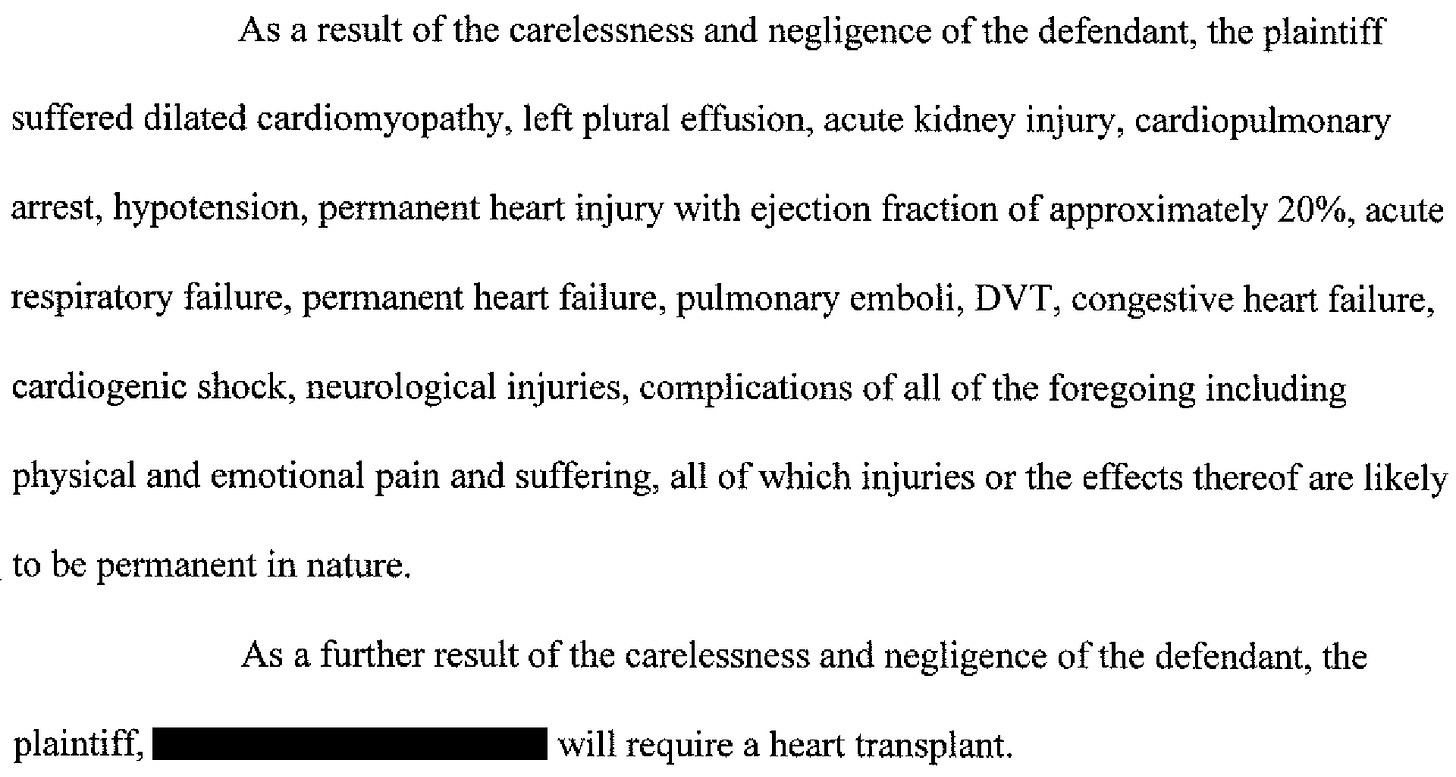
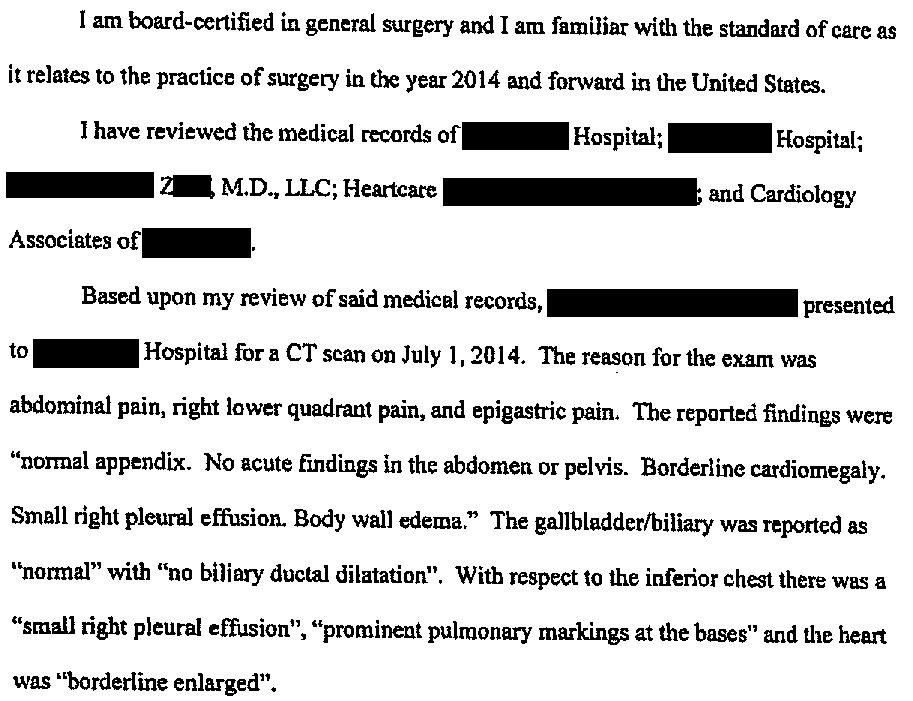
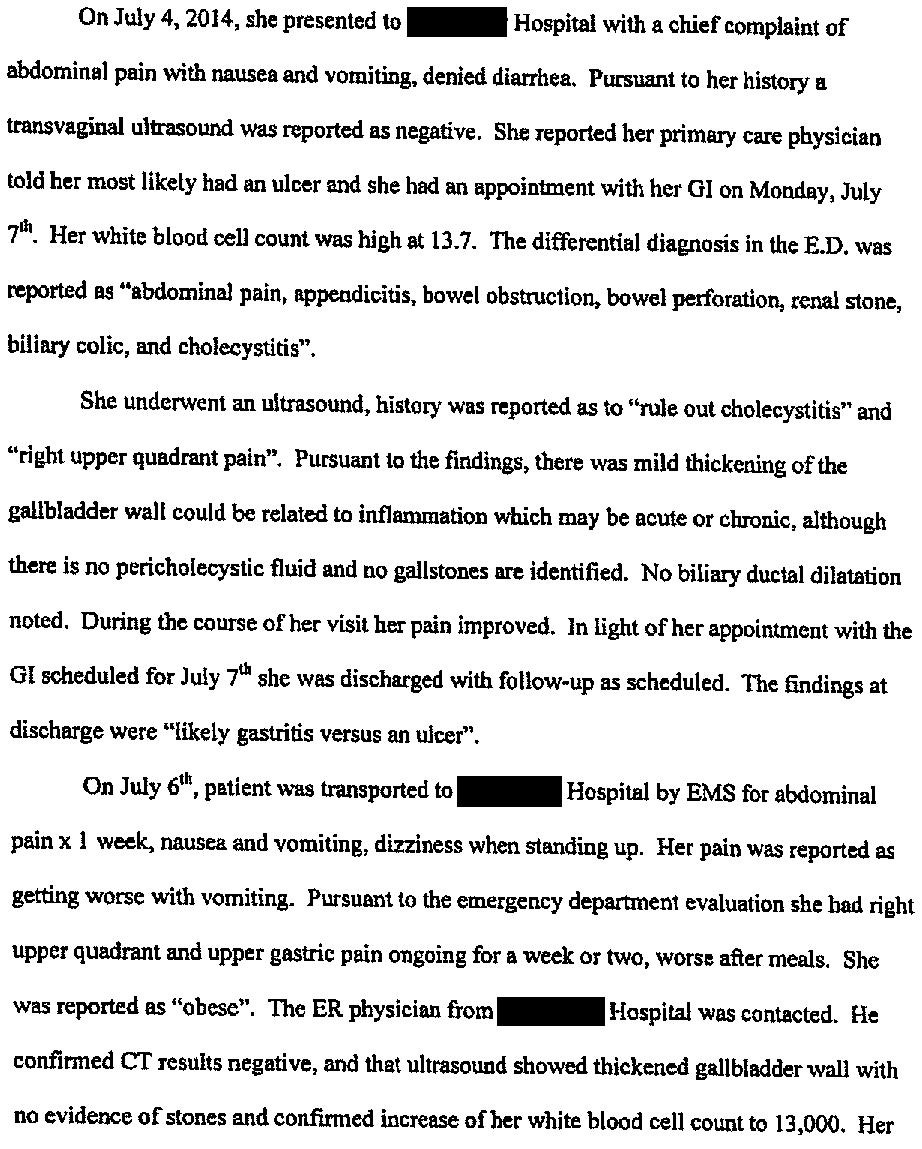
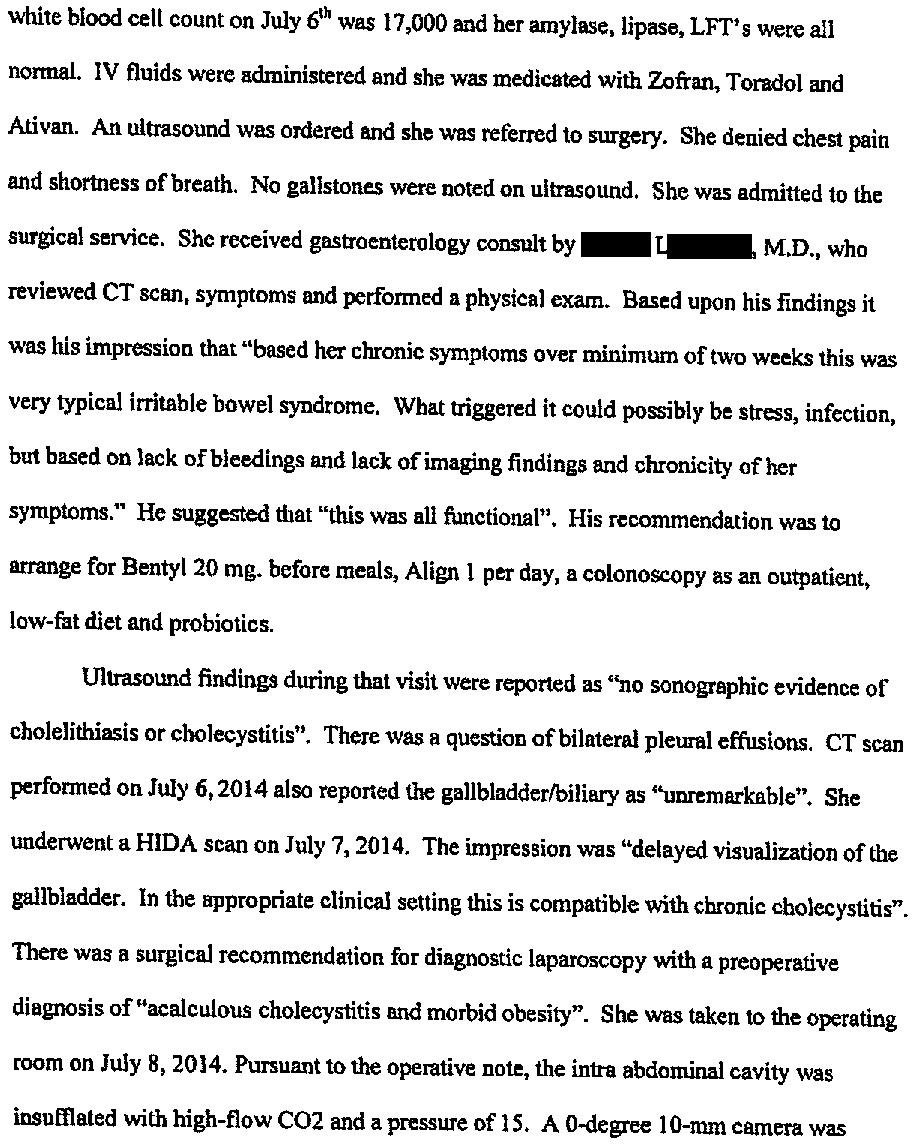
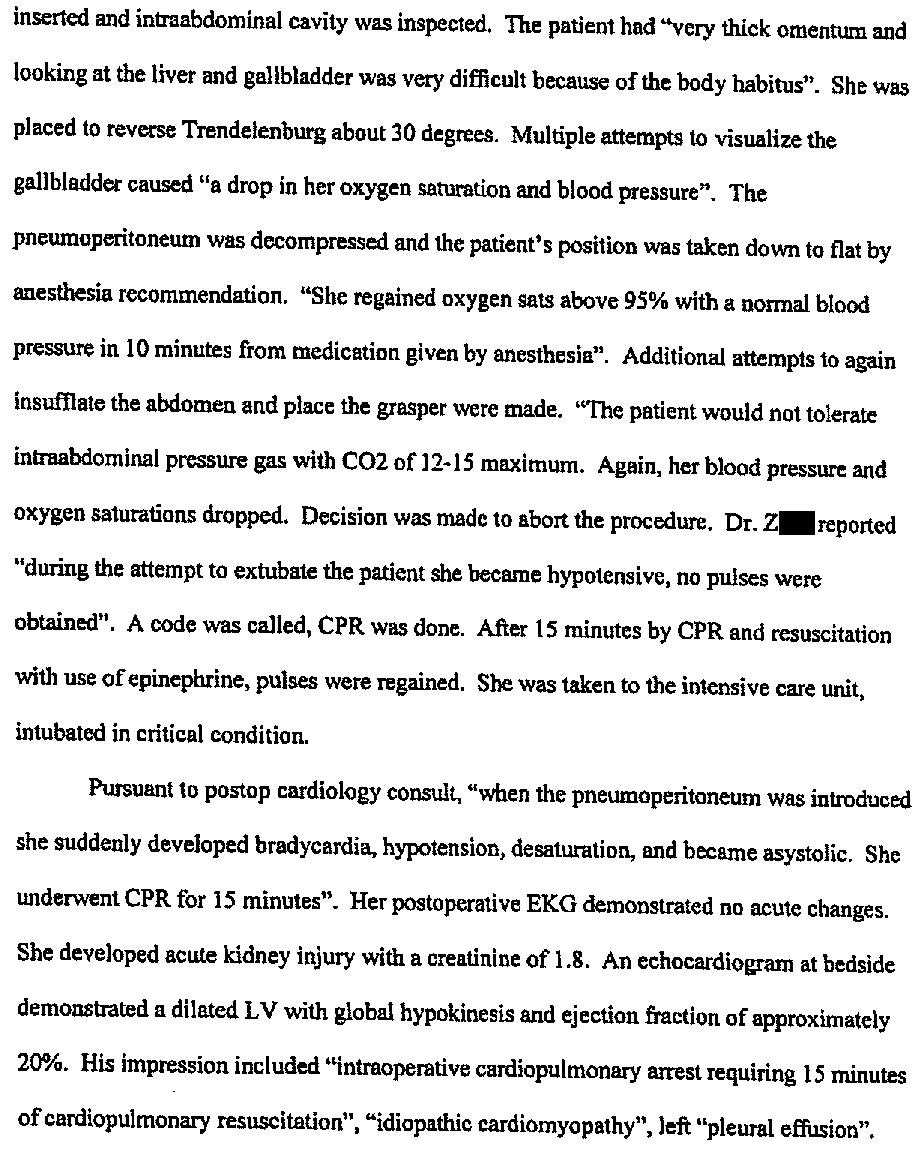
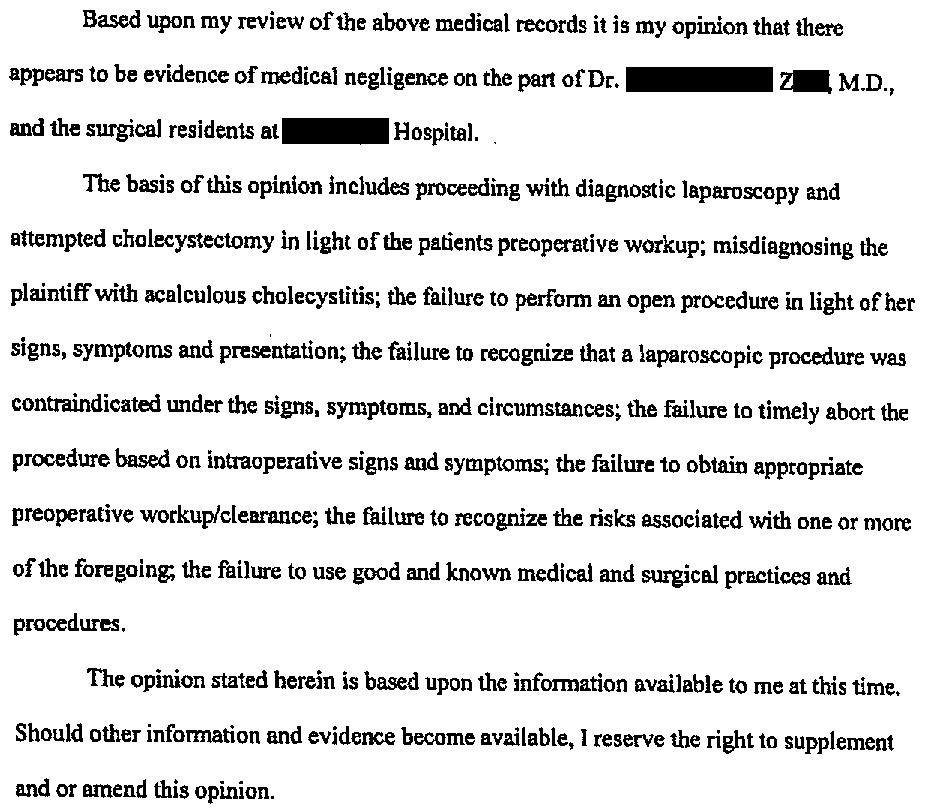
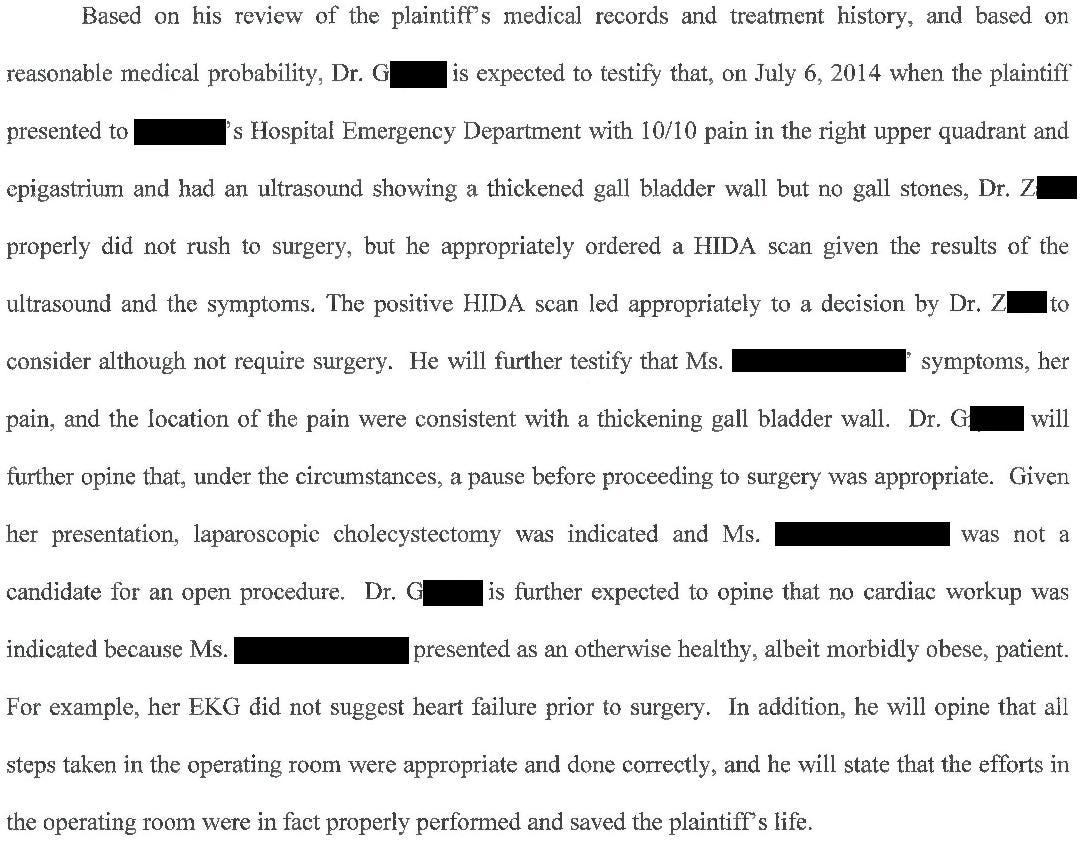
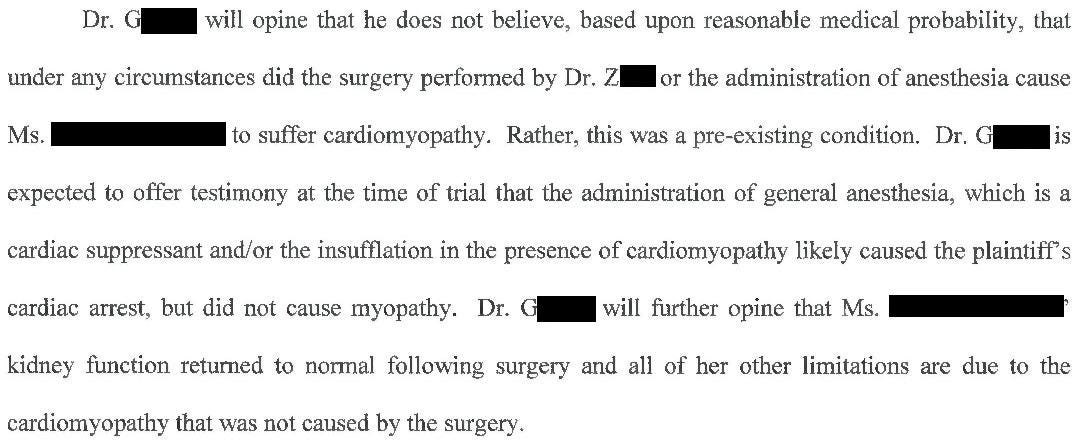
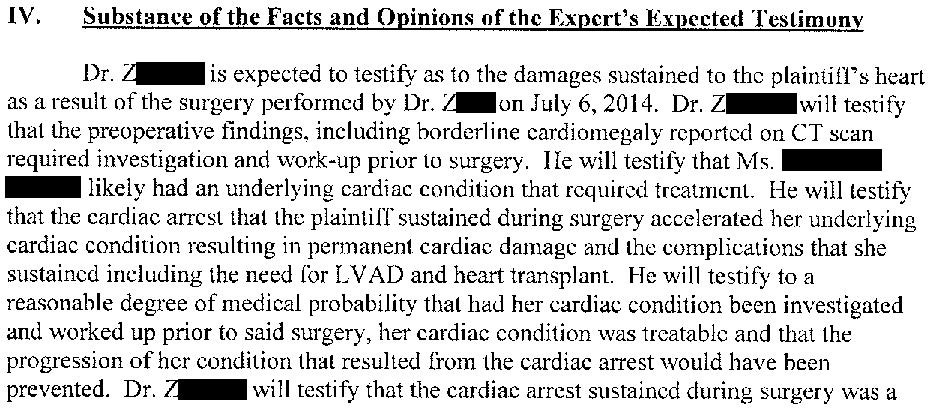

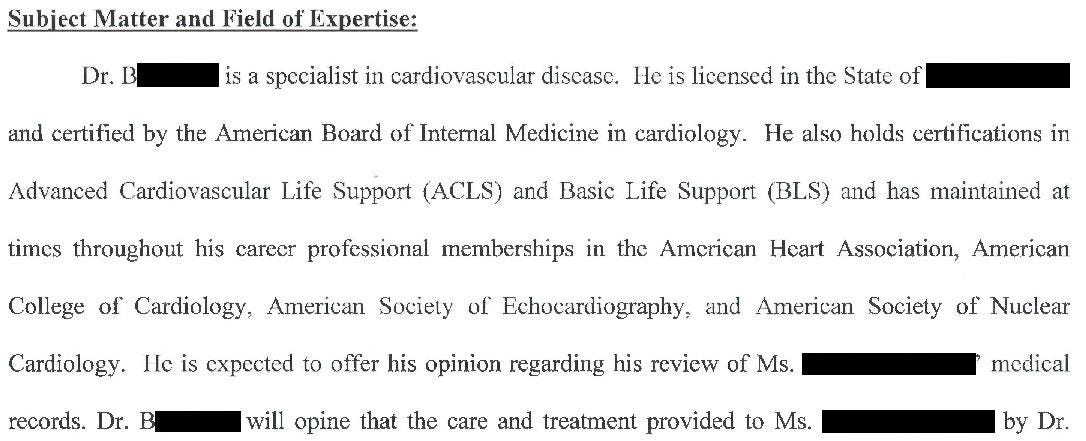
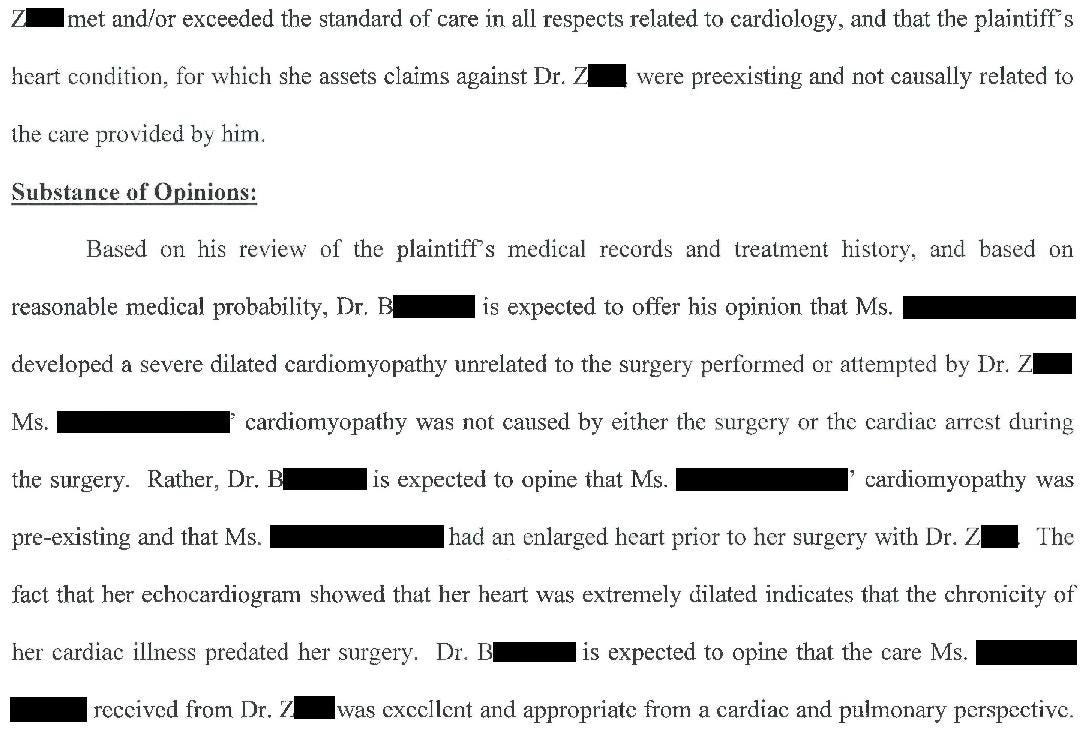


This obviously is a very sad case, and I doubt that you can have a 15 min cardiac arrest without at least some permanent consequences. However, I don't think the surgeon did anything wrong. I'm an ER doc, I see heart failure all the time, and I would not think of CHF as in my differential for RUQ pain. I guess going forward if I see pleural effusion and or body wall edema reported on a young patient I wouldn't expect to have those findings, I'll add on a proBNP and a trop. But I don't blame the general surgeon at all, although I guess cases like this are probably part of the reason that the majority of surgeons at my hospital never want to admit their own patients.
I will never forget the middle aged black male who presented to our VA Hospital w/ intractable N/V several hours after eating some raw oysters that he said he knew were tainted, but ate them anyway. I could never get him settled down and admitted him for further stabilization. He arrested in radiology getting a chest xray. Cause of death: acute inferior MI. He never had anything to suggest pre-existing or acute CV illness, other than the N/V. I've beat myself up over this for 45 yr. Went into GI and never had another similar experience.